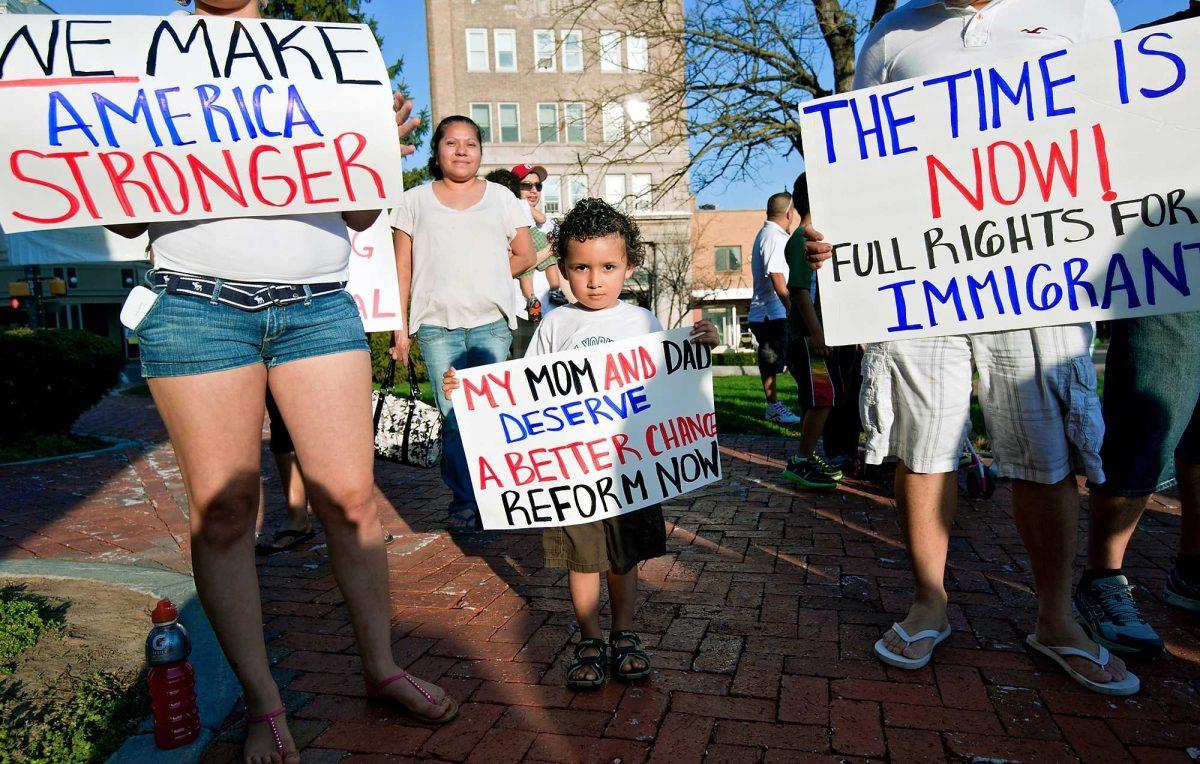Since her inception, America has long been heralded as the “land of immigrants,” the “land of opportunity” and the “melting pot.”
But these words don’t really hold any substance or legitimacy today, as the United States is currently faced with an immigration system in dire need of reform.
Thankfully, we have a pretty clear understanding of the problems inherent within our nation’s immigration system and, more importantly, policy makers are aware of the most effective solutions for fixing these problems.
Unfortunately, our broken political system has prevented any sort of comprehensive immigration reform from taking place.
To be sure, the Democratic-led Senate passed a bipartisan immigration bill earlier this year, which included, among other things, strengthened border security, punishment for businesses that knowingly hire undocumented workers and a modernization of the immigration system.
These proposed measures are non-controversial for the most part. But the Republican-run House of Representatives refused to even consider the bill.
Why?
Because, in addition to the aforementioned proposals, the Senate immigration bill also included a politically contentious measure: implementing a pathway to citizenship for the now 11 million undocumented immigrants who are already living in the U.S.
So what’s going on with immigration reform now?
While it’s essentially in the same state of limbo as before, President Barack Obama on Monday urged House Republicans to back new immigration legislation, saying he is willing to split a bill into separate pieces if that would allow it to pass.
This renewed, piecemeal approach to tackling our nation’s immigration challenges may have a better chance of becoming law than a large, broad-based proposal.
But regardless of how we approach an immigration bill — whether it be passed comprehensively or sliced into smaller bills and then passed — the debate is likely to end in the same place as before:
How do we deal with the 11 million undocumented immigrants already living in the U.S.?
What the argument really should come down to is the overwhelmingly positive economic benefits our nation would experience as a whole from a reform that grants legal status and a path to full citizenship for these millions of undocumented immigrants.
As a recent study by the Center for American Progress illustrates, legal status and a path to full citizenship for undocumented immigrants will result in considerable economic stimulus with respect to “growth, earnings, tax revenues and jobs.”
Indeed, a recent report by the Congressional Budget Office confirms the good economic news in more concrete terms.
Immigration reform that includes a pathway to citizenship will cut deficits by $200 billion in the first ten years and $700 billion in the second ten years. Additionally, the CBO expects real Gross Domestic Product to increase by 3.3 percent by 2023 and by 5.4 percent in 2033.
So, the overall effect of immigration reform for the economy is unambiguously good. But shouldn’t that make sense?
Currently, most undocumented immigrants work and live in the U.S. just as normal citizens do, yet they consume public goods without paying taxes.
Simply put, they are the beneficiaries of our hospital systems, police and fire departments and public school systems, despite not having to pay for them.
In addition to this, undocumented workers are severely restricted with respect to what types of jobs they can pursue. As a result, the vast majority works in low-skilled, low-wage jobs.
The logic behind immigration reform is straightforward: Legal status and citizenship will enable undocumented immigrants to produce and earn significantly more than they do when they are sitting on the economic sidelines.
The resulting productivity and wage increases will provide considerable stimulus to the economy because immigrants are not merely workers — they are also consumers and taxpayers.
Immigrants will spend their increased earnings on products such as food, clothing, electronics, cars, furniture, etc.
This increased spending will, in turn, stimulate demand for goods and services, which fosters the creation of jobs and grows our economy.
With economic uncertainty still looming in the United States, the case for comprehensive immigration reform is obvious: let’s make a deal. Soon.
Jay Meyers is a 21-year-old economics junior from Shreveport.
Opinion: Immigration reform provides economic merits
By Jay Meyers
November 26, 2013
Anthony Alexandra Ayala, 3, stands with his mom, Anyi Barahona, left, who immigrated from Honduras nine years ago, and dad, Hector Rosales, right, who immigrated from Guatemala 13 years ago, during an immigration reform rally at the Court Square in Harrisonburg, Va., on Wednesday, April 10, 2013. Tens of thousands of immigrants and activists rallied nationwide Wednesday in a coordinated set of protests aimed at pressing Congress to approve immigration measures that would grant 11 million immigrants living here illegally a path toward citizenship. (AP Photo/The Daily News-Record, Jason Lenhart)





